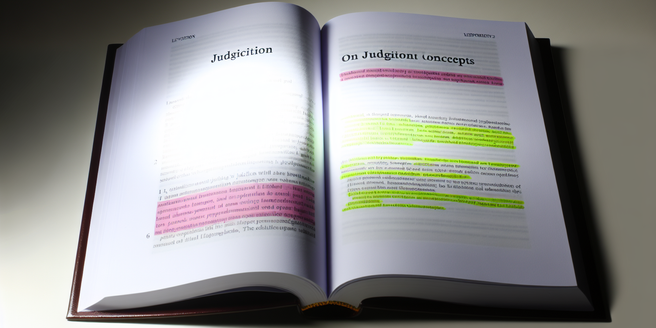
Understanding the Concept of Mass Tort Lawsuits
Mass tort lawsuits arise when multiple victims suffer similar injuries due to the negligent actions of a common defendant. This could stem from harmful pharmaceuticals, defective products, or widespread disasters. In fundamental terms, mass tort lawsuits enable victims to seek justice and compensation for the wrongs suffered. Such lawsuits are complex, involving extensive research, evidence compilation, and plaintiff coordination. Besides, they also entail a vast array of legal intricacies, palpably jurisdiction, which forms the focus of this discussion.
Jurisdiction refers to the authority granted to a court to adjudicate a case. For mass tort lawsuits, jurisdiction becomes a contentious issue due to the involvement of numerous plaintiffs hailing from different geographic locations. The defendant’s location and where the harm occurred also complicate matters further. Thus, understanding jurisdiction is essential for law practitioners involved in mass tort lawsuits.
Basics of Jurisdiction in Law
Jurisdiction, fundamentally, refers to the authority of a court to entertain a legal civil case. Different types of jurisdictions exist, including personal jurisdiction, subject matter jurisdiction, and geographic jurisdiction. Personal jurisdiction involves the power of the court over the individual parties involved in a lawsuit. Subject matter jurisdiction relates to the court’s power to handle the particular type of issue in dispute. Geographic jurisdiction, on the other hand, concerns the physical area within which a court’s rulings can be enforced.
How Jurisdiction Affects Mass Tort Lawsuits
One of the most complicated matters in mass tort lawsuits is determining which court has the jurisdiction to hear the case. The complexity arises due to the multiple plaintiffs involved, who suffer harm in different geographic locations. Furthermore, the defendants involved in mass tort cases are frequently large corporations with a presence in numerous jurisdictions. Thus, determining the appropriate jurisdiction often sparks disputes that could potentially affect the lawsuit’s outcome.
Federal vs State Jurisdiction in Mass Tort Cases
In mass tort cases, jurisdictional issues often revolve around whether a case should be heard in federal or state court. Federal courts usually have jurisdiction over cases involving constitutional matters, federal law, or those where the parties involved are from different states. On the flip side, state courts traditionally handle cases involving state law. Ascertaining whether a mass tort case falls within the scope of federal or state jurisdiction can be a complex process and often becomes a subject of contention.
Common Jurisdictional Challenges in Mass Tort Lawsuits
Two primary challenges often arise in the context of jurisdiction in mass tort cases. One is the issue of forum shopping, where law firms seek the most favorable jurisdiction to hear their case. The second is the challenge of class certification, where a group of plaintiffs needs to demonstrate sufficiently similar claims to proceed as a group. These challenges can significantly impact how cases proceed and their ultimate outcomes.
Case Study: Jurisdictional Disputes in Recent Mass Tort Lawsuits
Real-world examples of jurisdictional disputes in mass tort cases abound. One notable case is the litigation surrounding Bayer’s Roundup product. Plaintiffs across various states have brought suits against Bayer, necessitating complex jurisdictional considerations. A comparable situation arose in the opioid crisis lawsuits, with thousands of suits filed across numerous jurisdictions, causing disputes over federal and state jurisdiction matters.
Legal Theories behind Jurisdictional Challenges
Several legal theories underpin the jurisdictional challenges in mass tort lawsuits. One is the ‘minimum contacts’ principle, stipulating that for a court to exercise personal jurisdiction, the defendant must have sufficient contacts with the jurisdiction. Another central legal theory is ‘forum non conveniens,’ which allows courts to dismiss cases if a more appropriate forum is available elsewhere.
Overcoming Jurisdictional Hurdles in Mass Tort Cases
Attorneys can employ several strategies to overcome jurisdictional challenges in mass tort cases. One commonly used method is consolidation, where lawsuits with similar issues of fact are merged and heard in a single jurisdiction. Another is the Multidistrict Litigation (MDL) procedure, which centralizes pretrial proceedings in significant cases to streamline the process.
Impact of Jurisdiction on the Outcome of a Mass Tort Case
The role of jurisdiction in the final verdict of a mass tort case cannot be overstated. A change of jurisdiction can dramatically alter a case’s landscape, swaying the outcome favorably or unfavorably for the litigating parties. It affects factors like the application of the law, jury’s perception of the case, and potential compensation amounts.
Future of Jurisdiction in Mass Tort Lawsuits
Given the evolving nature of mass tort lawsuits and the increasing globalization of multinational corporations, one can predict more complex jurisdictional issues in the future. However, innovations such as MDL procedures promise more efficient handling of these challenges. Despite these prospects, lawyers must stay abreast with the emerging patterns in jurisdiction law to effectively navigate the terrain of mass tort lawsuits.
